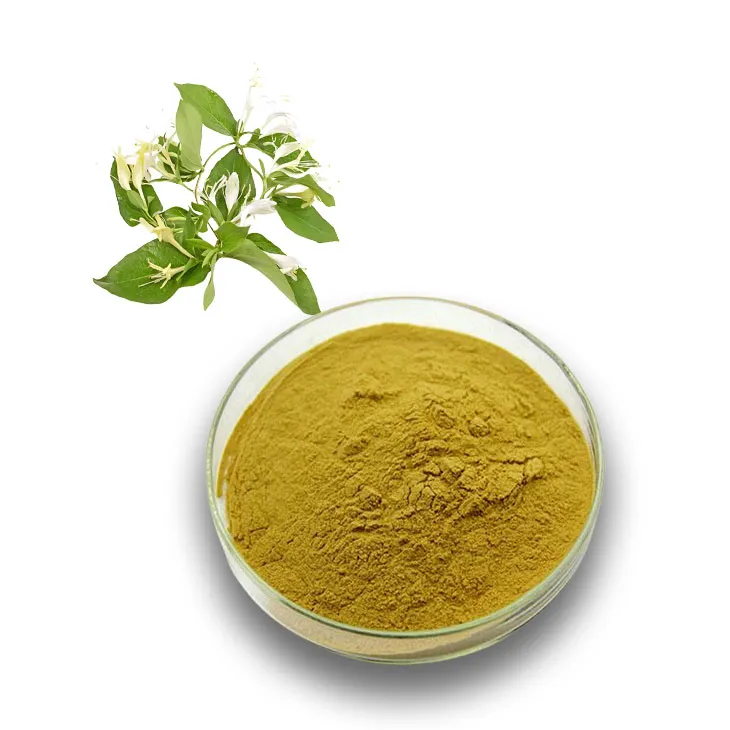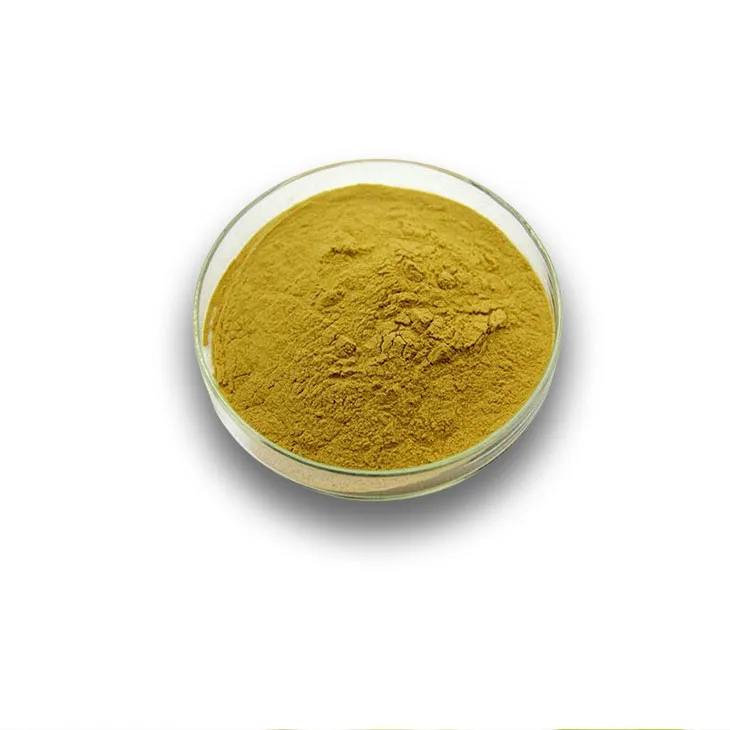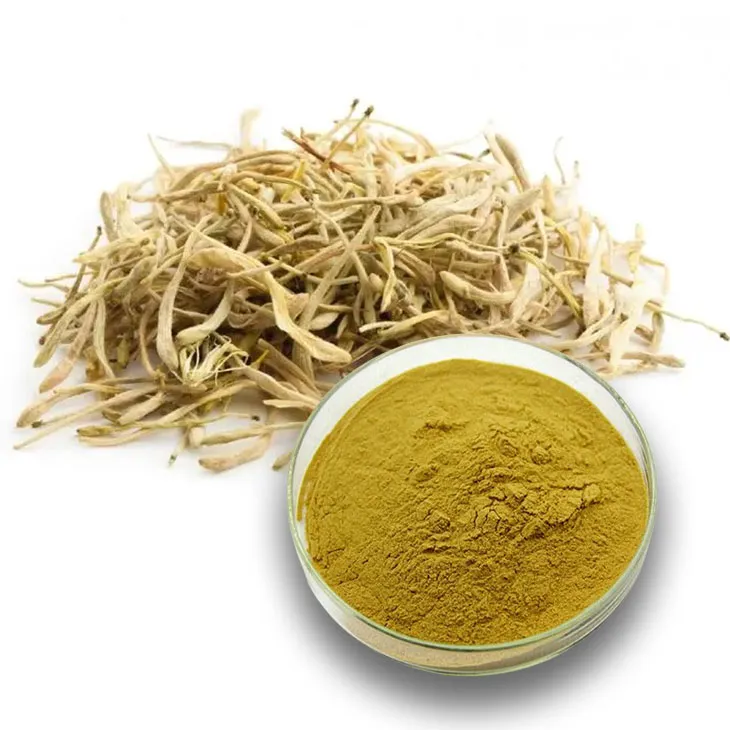- 0086-571-85302990
- sales@greenskybio.com
Emerging Trends and Competitive Strategies in the Honeysuckle Pollen Market.
2024-12-16

1. Introduction
The Honeysuckle Pollen market has been evolving in recent years, driven by various factors. Honeysuckle Pollen, known for its unique properties, has attracted the attention of different industries. This article aims to explore the emerging trends in this market and the competitive strategies that companies can adopt.

2. Emerging Trends in the Honeysuckle Pollen Market
2.1. Growing Demand in Health - Conscious Markets
In today's health - conscious society, consumers are increasingly looking for natural products that can enhance their well - being. Honeysuckle pollen has emerged as a popular choice due to its perceived health benefits. It is rich in nutrients such as vitamins, minerals, and amino acids, which are essential for maintaining good health. For example, it is believed to have antioxidant properties that can help protect the body against free radicals. As a result, the demand for honeysuckle pollen in health food markets has been on the rise.
2.2. Increased Use in the Cosmetic Industry
The cosmetic industry has also recognized the potential of honeysuckle pollen. It is being incorporated into a variety of cosmetic products, such as creams, lotions, and masks. Honeysuckle pollen has moisturizing and anti - inflammatory properties, which can improve the skin's condition. For instance, it can help soothe irritated skin and reduce redness. Cosmetic companies are constantly researching and developing new products that contain honeysuckle pollen to meet the growing demand for natural and effective skincare solutions.
2.3. Expansion in the Pharmaceutical Industry
In the pharmaceutical industry, honeysuckle pollen is being studied for its potential medicinal properties. Research has shown that it may have antibacterial, antiviral, and immunomodulatory effects. These properties make it a promising candidate for the development of new drugs. Pharmaceutical companies are investing in research to further explore the therapeutic applications of honeysuckle pollen, especially in the treatment of infectious diseases and immune - related disorders.
2.4. Rising Interest in Organic and Sustainable Products
With the increasing awareness of environmental protection and sustainable development, consumers are more inclined to choose organic and sustainable products. Honeysuckle pollen, when sourced sustainably, can meet this demand. Organic farming methods can ensure the purity and quality of honeysuckle pollen, while also reducing the environmental impact. This trend has led to a growing market for organic honeysuckle pollen products.

3. Competitive Strategies in the Honeysuckle Pollen Market
3.1. Product Differentiation
One of the key competitive strategies in the honeysuckle pollen market is product differentiation. Companies can distinguish their products from competitors by highlighting unique features or benefits. For example, a company may develop a honeysuckle pollen product that is specifically formulated for a certain health condition, such as allergy relief or digestive health. Another way to differentiate is through the use of advanced extraction and processing techniques to ensure the highest quality and purity of the pollen. Additionally, companies can offer different forms of honeysuckle pollen products, such as capsules, powders, or tinctures, to cater to different consumer preferences.
3.2. Quality Enhancement
Quality is crucial in the honeysuckle pollen market. Companies should focus on enhancing the quality of their products to gain a competitive edge. This can be achieved through strict quality control measures at every stage of production, from sourcing the raw materials to the final packaging. For instance, ensuring that the honeysuckle plants are grown in a clean and unpolluted environment, and using high - quality extraction equipment to preserve the active ingredients in the pollen. Regular quality testing should also be carried out to ensure that the products meet the required standards.
3.3. Brand Building
Building a strong brand is an effective competitive strategy. A well - known and trusted brand can attract more customers and command a higher price. Companies can invest in marketing and advertising to promote their honeysuckle pollen products and build brand awareness. This can include creating a memorable brand name, designing an attractive logo, and using various marketing channels such as social media, print media, and trade shows. Additionally, providing excellent customer service can also help to enhance the brand's reputation.
3.4. Collaboration and Partnership
Collaboration and partnership can be beneficial for companies in the honeysuckle pollen market. For example, companies can collaborate with research institutions to conduct joint research on the properties and applications of honeysuckle pollen. This can help them stay at the forefront of scientific research and develop innovative products. Partnerships with suppliers can also ensure a stable and high - quality supply of raw materials. Moreover, companies can consider partnering with other companies in related industries, such as the food, cosmetic, or pharmaceutical industries, to expand their market reach and create new business opportunities.

4. Challenges and Opportunities in the Honeysuckle Pollen Market
4.1. Challenges
- Quality Control: Ensuring the consistent quality of honeysuckle pollen can be a challenge. The quality of the pollen can be affected by factors such as the growing environment, harvesting methods, and processing techniques.
- Regulatory Compliance: The honeysuckle pollen market is subject to various regulations, especially in the pharmaceutical and food industries. Companies need to ensure that their products comply with all relevant regulations, which can be time - consuming and costly.
- Competition: As the market for honeysuckle pollen grows, competition is becoming more intense. Companies need to continuously innovate and improve their competitive strategies to stay ahead.
4.2. Opportunities
- Growing Market Demand: The increasing demand for honeysuckle pollen in different industries presents a significant opportunity for companies. They can capitalize on this trend by expanding their production and marketing efforts.
- Research and Development: There is still much to be discovered about the properties and applications of honeysuckle pollen. Companies that invest in research and development can be at the forefront of innovation and develop new products with unique benefits.
- Sustainable Development: The trend towards sustainable products provides an opportunity for companies to develop and market organic and sustainably sourced honeysuckle pollen products, which can appeal to environmentally conscious consumers.

5. Conclusion
The honeysuckle pollen market is experiencing emerging trends such as growing demand in health - conscious markets, increased use in the cosmetic and pharmaceutical industries, and rising interest in organic and sustainable products. To compete in this market, companies can adopt strategies such as product differentiation, quality enhancement, brand building, and collaboration. However, they also face challenges such as quality control, regulatory compliance, and competition. By recognizing the opportunities and addressing the challenges, companies can succeed in the honeysuckle pollen market and contribute to its continued growth.
FAQ:
What are the main emerging trends in the honeysuckle pollen market?
The main emerging trends in the honeysuckle pollen market include a rising demand in health - conscious markets. Additionally, there is an increased use of honeysuckle pollen in the cosmetic and pharmaceutical industries.
Why is there a growing demand for honeysuckle pollen in health - conscious markets?
The growing demand in health - conscious markets is due to the unique properties of honeysuckle pollen. It may offer various health benefits, which attract consumers who are more aware of their health and are seeking natural products.
What are the key competitive strategies in the honeysuckle pollen market?
The key competitive strategies in the honeysuckle pollen market are product differentiation and quality enhancement. Product differentiation can help a company's product stand out from competitors, while quality enhancement can attract more customers who are looking for high - quality honeysuckle pollen products.
How can companies achieve product differentiation in the honeysuckle pollen market?
Companies can achieve product differentiation in the honeysuckle pollen market in several ways. For example, they can develop unique formulations using honeysuckle pollen for different applications such as in cosmetics or pharmaceuticals. They can also target specific customer segments with specialized marketing and packaging, or offer additional services or features related to the honeysuckle pollen products.
What role does quality enhancement play in the honeysuckle pollen market?
Quality enhancement plays a significant role in the honeysuckle pollen market. High - quality honeysuckle pollen is more likely to meet the strict requirements of the pharmaceutical and cosmetic industries. It can also build a good reputation for the company, leading to increased customer loyalty and a competitive edge in the market.
Related literature
- Trends in Honeysuckle Pollen Utilization in the Cosmetic Industry"
- "The Future of Honeysuckle Pollen in the Pharmaceutical Market"
- "Competitive Analysis of Honeysuckle Pollen Producers"
- ▶ Hesperidin
- ▶ citrus bioflavonoids
- ▶ plant extract
- ▶ lycopene
- ▶ Diosmin
- ▶ Grape seed extract
- ▶ Sea buckthorn Juice Powder
- ▶ Beetroot powder
- ▶ Hops Extract
- ▶ Artichoke Extract
- ▶ Reishi mushroom extract
- ▶ Astaxanthin
- ▶ Green Tea Extract
- ▶ Curcumin Extract
- ▶ Horse Chestnut Extract
- ▶ Other Problems
- ▶ Boswellia Serrata Extract
- ▶ Resveratrol Extract
- ▶ Marigold Extract
- ▶ Grape Leaf Extract
- ▶ blog3
- ▶ blog4
- ▶ blog5
-
Pure 85% Tomentil Extract.
2024-12-16
-
Hawthorn powder
2024-12-16
-
Tamarind extract powder
2024-12-16
-
Coix Seed Extract
2024-12-16
-
Phellodendron Extract
2024-12-16
-
Sophora Japonica Flower Extract
2024-12-16
-
Licorice Root Extract Powder
2024-12-16
-
Camu Camu Extract
2024-12-16
-
Apricot Powder
2024-12-16
-
Senna Leaf Extract
2024-12-16
-
Medicinal Marshmallow Extract
2024-12-16





















